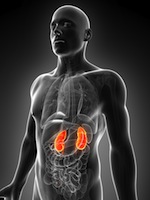
Drugs like Prilosec OTC, Prevacid, and Nexium fall into a class known as PPIs, or proton-pump inhibitors. The drugs work by stifling the body’s ability to produce gastric acid; one of the key factors in experiencing frequent heartburn.
Most heartburn is treated over the counter, however, millions of prescriptions for stronger PPIs are written every year. This makes the PPI one of the most widely prescribed drugs in America; something that shouldn’t come as a shock to anyone who has seen heartburn portrayed in commercials as nothing more than a fact of life and something that a quick pill can’t solve.
The study linking PPIs to kidney damage was published in the Journal of the American Society of Nephrology. This study follows one published earlier this year in the Journal of the American Medical Association’s Journal of Internal Medicine. Both led to the same conclusion: patients taking PPIs to control their heartburn were more likely to suffer the effects of kidney failure and kidney disease than those taking heartburn medications based on histamine H2 receptor blockers.
Academics point out that the two studies don’t necessarily prove causation. While there may be a relationship between the two conditions, it may be premature to say that one actually causes the other. They also call attention to the fact that both studies were based on data from older populations, primarily from a veteran’s hospital. This population is more likely to suffer from other ailments which can exacerbate symptoms and further skew results.
Still, researchers recommend taking the drugs only when it is absolutely necessary and to stop taking them once the condition has been alleviated. It’s also important to note that a few fairly simple lifestyle changes can go a long way toward alleviating heartburn. Changes in diet, fitness, and sleeping position can all work together to cut down the body’s production of gastric acid. The result is a healthier you without the risks of a drug that could cause you long-term harm.
